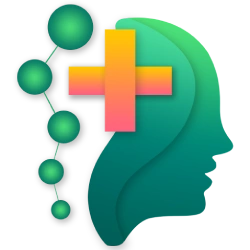Memory Loss Dementia
Memory Loss Dementia
Memory loss and dementia are complex neurological conditions that can significantly impact an individual’s cognitive abilities and daily functioning. Memory loss can occur due to various factors, including aging, underlying health conditions, medication side effects, or neurological disorders.
Dementia is a broad term used to describe a decline in cognitive function severe enough to interfere with daily life. Alzheimer’s disease is the most common cause of dementia, accounting for 60-80% of cases.
What are the causes and symptoms of dementia?
Causes of Dementia:
- Alzheimer’s Disease: The most common cause, involving the buildup of abnormal proteins in the brain.
- Vascular Dementia: Results from reduced blood flow to the brain, often due to stroke or other vascular issues.
- Lewy Body Dementia: Characterized by abnormal protein deposits in the brain called Lewy bodies.
- Frontotemporal Dementia: Caused by damage to the frontal and temporal lobes of the brain.
- Mixed Dementia: When more than one type of dementia is present, often Alzheimer’s disease combined with vascular dementia.
- Parkinson’s Disease: Some individuals with Parkinson’s disease may develop dementia as the condition progresses.
- Huntington’s Disease: An inherited disorder that leads to progressive brain damage.
- Creutzfeldt-Jakob Disease: A rare, fatal brain disorder caused by abnormal proteins called prions.
- HIV-associated Dementia: People with HIV/AIDS may develop dementia due to the virus affecting the brain.
- Traumatic Brain Injury: Severe head injuries can lead to long-term cognitive impairment and dementia.
Symptoms of Dementia:
- Memory Loss: Difficulty remembering recent events or information, particularly short-term memory loss.
- Difficulty with Communication: Struggling to find the right words or following conversations.
- Impaired Judgment and Problem-Solving: Difficulty making decisions, solving problems, or handling complex tasks.
- Disorientation: Getting lost in familiar places or losing track of time.
Difficulty with Complex Tasks: Struggling to perform activities that were once routine, such as managing finances or cooking. - Changes in Mood and Behavior: Mood swings, irritability, depression, or anxiety.
- Loss of Initiative: Lack of interest in activities or social withdrawal.
- Difficulty with Motor Skills: Trouble with coordination and motor functions, particularly in later stages.
- Personality Changes: Changes in personality, such as becoming more agitated, paranoid, or apathetic.
- Hallucinations and Delusions: Seeing or hearing things that aren’t there, or believing things that are not true.
How to diagnose dementia?
- Cognitive and Neuropsychological Testing: Cognitive tests are used to assess various aspects of mental function, including memory, attention, language, and problem-solving skills. Neuropsychological testing may also be performed to provide more detailed information about cognitive strengths and weaknesses.
- Laboratory Tests: Blood tests may be ordered to rule out other potential causes of cognitive impairment, such as vitamin deficiencies, thyroid disorders, or infections.
- Brain Imaging: Imaging tests, such as MRI or CT scans, may be used to detect structural changes in the brain, such as shrinkage or the presence of abnormal lesions, which can help in diagnosing specific types of dementia and ruling out other conditions.
- Other Diagnostic Tests: In some cases, additional tests, such as cerebrospinal fluid analysis or PET scans, may be recommended to help confirm a diagnosis or distinguish between different types of dementia.
- Clinical Criteria: The healthcare provider will also consider established clinical criteria, such as those outlined in the Diagnostic and Statistical Manual of Mental Disorders (DSM-5) or the International Classification of Diseases (ICD-10), to determine if the individual meets the criteria for dementia.
What are the treatment options for memory loss and dementia?
Medications: Several medications may be prescribed to help manage symptoms of dementia.
Cognitive Stimulation: Engaging in mentally stimulating activities, such as puzzles, games, or reminiscence therapy, can help maintain cognitive function and promote social interaction.
Physical Exercise: Regular physical activity has been shown to improve mood, mobility, and overall well-being in individuals with dementia. Exercise programs tailored to the individual’s abilities and preferences are recommended.
Behavioral Interventions: Techniques such as behavioral therapy, environmental modifications, and caregiver education can help manage challenging behaviors and improve communication and quality of life for both the individual with dementia and their caregivers.
Supportive Services: Accessing support services such as respite care, adult day programs, support groups, and in-home assistance can help relieve caregiver burden and provide additional support for individuals with dementia and their families.
Caregiver Support and Education: Caregivers play a crucial role in supporting individuals with dementia. Providing caregivers with education, training, respite care, and emotional support can help reduce stress and improve the overall caregiving experience.
Advance Care Planning: As dementia progresses, individuals and their families may need to make decisions about future care preferences, including end-of-life care and advance directives. Advance care planning allows individuals to express their wishes and preferences regarding medical treatment and end-of-life care while they are still able to do so.
Seeking guidance from Dr. Nishtha Dalwani, a psychiatrist in Mumbai, can provide valuable support for dementia and mental health concerns. Schedule an appointment today to take proactive steps towards improved well-being and emotional balance.

